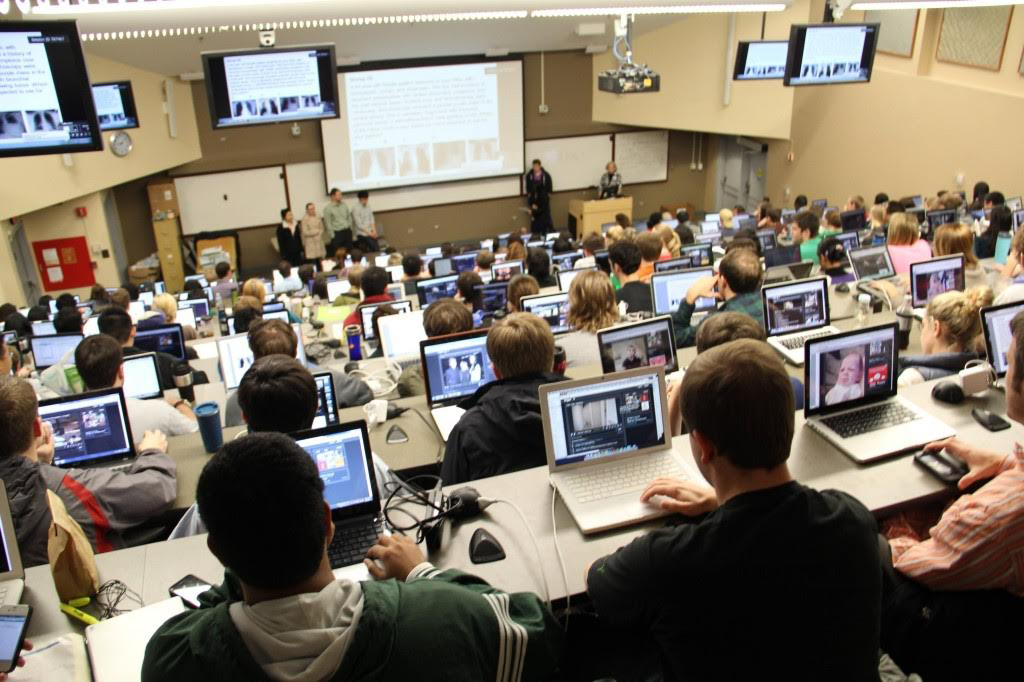Scholar Introduction
David Porter
Welcome to the sixth Ontario Extend Module. Like previous modules, we open with a scenario to get you thinking about the concept of the Scholarship of Teaching and Learning. We then provide an overview of what to expect in the module, followed by topics about scholarship and activities for you to experience it in action.
Here is the scenario to open the Scholarship module:
I’ve been teaching in my discipline for a number of years and I’m curious about practices that might improve my teaching and the success of my students. I’d like to try a few new techniques in my class, but I’m unsure where to start, how big a change I should make initially, or whether the strategy I decide to implement will make a difference in student learning outcomes or their satisfaction with my course.
One of the toughest moments in my teaching career was as a guest lecturer for a face-to-face course in the School of Interactive Arts and Technology at Simon Fraser University. Most of my teaching up to that point had been as an instructor for a series of fully online courses. Now I was being asked to do the reverse of my experience—the dreaded lecture hall experience in front of 200 students, all of whom came to class armed with a laptop, cellphone or tablet.

My instructor colleague asked that I not lecture for the full hour, but create an interactive experience that would engage the students and allow them to participate throughout the class as a purposeful demonstration of a lecture topic on knowledge construction. My heart still beats rapidly when I think back to that day. I had to be fully prepped with an engaging set of activities for an hour, or be prepared to potentially “bomb.”
My approach was straightforward:
- I used Google to research teaching practices for bringing interactivity and engagement to large-scale lectures.
- I researched how to employ the students’ own technology effectively in lecture halls to support learning engagement and lesson outcomes.
The result was a one-hour lecture divided into three parts that involved the students individually, in pairs, and as a whole class, using a three interactive activities linked to the ideas associated with knowledge construction. I think it worked, but I went away wondering how I would handle the same group of students over an entire course and what framework I might use to research teaching strategies for large-scale lecture experiences in the future.
The possibilities are endless!
Scholar Overview
This module examines how you can use your classroom and your courses as a research lab to explore how you might improve your teaching practice and positively affect student outcomes and their satisfaction with the overall learning experience in your course. It invites you to consider research about teaching and learning within your discipline and provides a process to implement a research plan.
This kind of action research is often called the “scholarship of teaching and learning” (SoTL), and it involves an awareness and appreciation of effective, research-based, discipline-appropriate pedagogical approaches for examining your own practice.
“The scholarship of teaching is not merely teaching our scholarship. Nor is it simply teaching well… The scholarship of teaching means that we invest in our teaching the intellectual powers we practice in our research”
Outcome
Create an action plan to examine key questions about improving student learning outcomes in a specific discipline area using your own course and teaching practice, informed by the research of others, to build your SoTL plan.
Objectives
- Explore key characteristics of SoTL.
- Identify instructional practices or teaching strategies from your own discipline that you would like to explore or test within your own courses.
- Identify a range of research strategies that suit your discipline.
- Identify a framework for analysis of your research.
- Select a strategy for sharing your research for others to build on.

